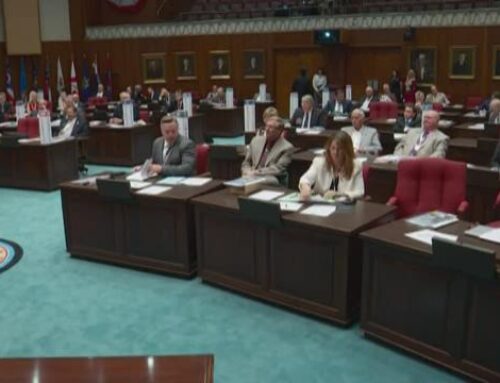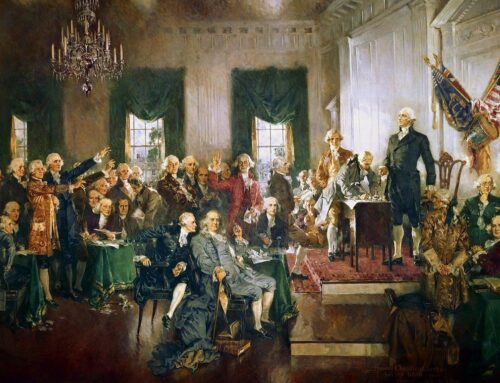
Five Guys: What Dobbs v Jackson Can Teach Us About Federalism
by Vickie Deppe – June 2022
The leak of a draft Supreme Court opinion penned by Justice Samuel Alito has ignited a firestorm in Washington and across the nation. While politicians gear up to make abortion a mid-term election issue, protestors can be heard expressing sentiments like, “Five guys in black robes shouldn’t have the power to tell me what to do!”
Whether one agrees with their stance on abortion or not, these protestors are right about the “five guys:” the Supreme Court was never intended to make law. It was created to try certain federal officials and adjudicate interstate disputes and those between states and the federal government. In Marbury v Madison, the Court staked its claim of judicial review, i.e., the power to vacate laws that violate the Constitution. The judicial branch never had and still does not have constitutional authority to make law…nor does the executive branch, which is charged with ensuring that our laws are faithfully executed. The authority to make law lies solely with legislative bodies.
It’s true that Roe is on uncertain ground because of guys in black robes…but not the ones who currently occupy the Supreme Court. Even liberal scholars have criticized Roe v Wade; perhaps none more notable than the late Justice Ruth Bader Ginsburg, who characterized the decision as a “breathtaking” judicial overreach that went much further than vacating the law in question “to fashion a regime…that displaced virtually every state law then in force.” She predicted, based on her own experience as a jurist, that it would prove to be “unstable.” Today we are experiencing the result of that instability.
Dobbs v Jackson illustrates why nominations to our federal courts—ostensibly the apolitical branch of our government—have become so contentious. Roe is just one example of the Court opting to effectively rewrite laws more to their liking instead of sending the originating legislature back to the drawing board. This practice seriously undermines a key feature of the design of our government: the separation of powers. It endangers rather than safeguards our rights by transferring lawmaking power from our elected legislators—men and women who must stand for reelection regularly and frequently—to as few as five unelected judges who, once nominated and confirmed, serve for life. The people who make laws shouldn’t be the same ones who decide whether or not they are constitutional.
The Atlantic has published an analysis of the leaked opinion that explores the constitutional considerations in play. It concludes,
…enacting legal change is precisely the role of the people’s elected representatives. Legislation is for the legislature, and if the people of the United States want to create a right to abortion, they have that power. They had that power before Roe, and if Alito’s opinion holds, they will still have that power.
Article V can be employed to restrain judicial overreach by limiting the Court to sending unconstitutional legislation back to the originating legislature rather than rewriting it. The Constitution does not permit “five guys in black robes” to tell us what to do. We shouldn’t allow it, either.


